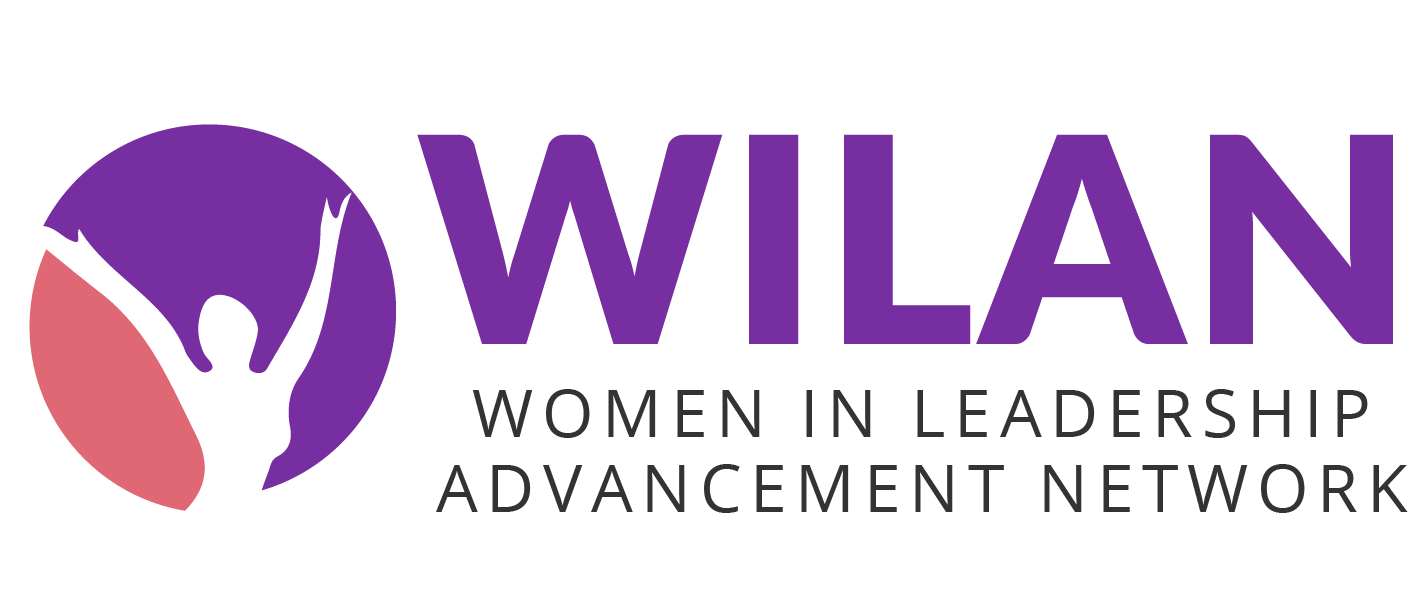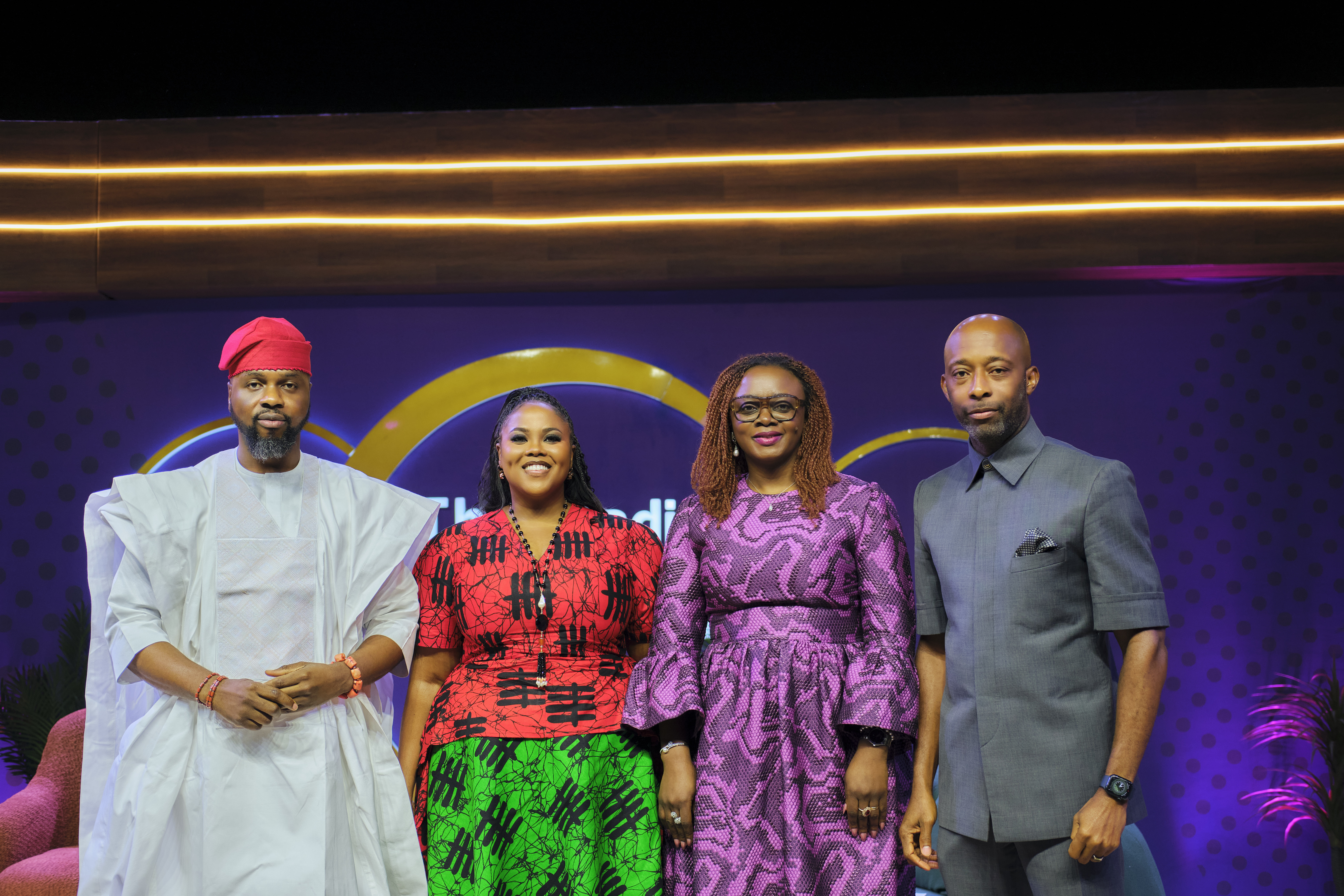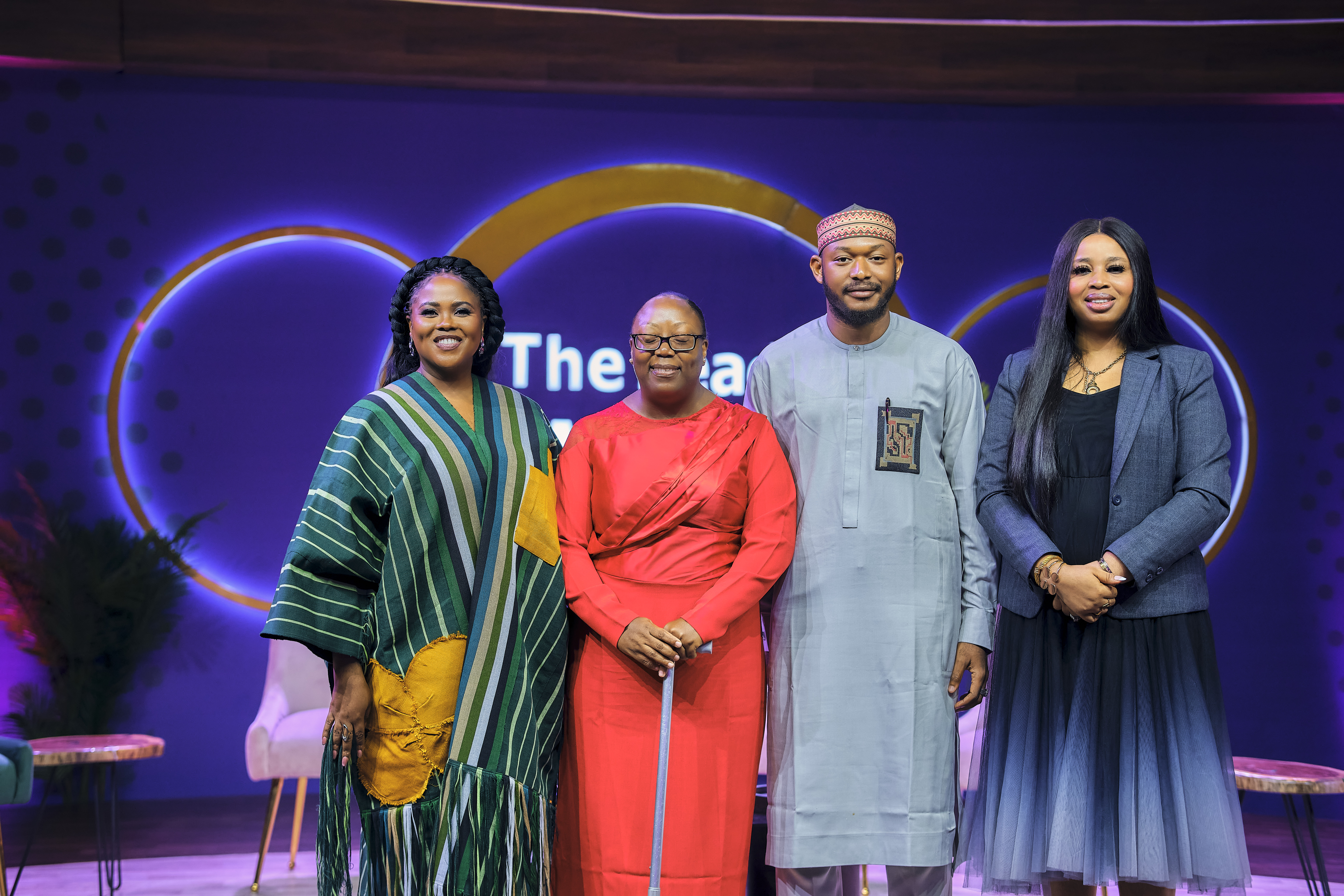Nigeria’s creative and tech scenes are booming, and the world is taking notice. Nollywood is now the second largest movie industry globally, and Afrobeats has become a global sound. Fuelled by young talent, internet access, and fresh ideas, this wave of creativity is shaping the country’s identity. But growth on this scale needs direction. This is where policy steps in, not to control creativity, but to guide it, support it, and ensure it thrives.
In episode 10 of The Leading Woman Show, we looked at how technology, innovation, and forward-thinking policies are unlocking the potential of Nigeria’s creative economy, and where the gaps still exist. We had experts as guests; Jane Egerton-Idehen, the Managing Director & Chief Executive Officer, Nigerian Communication Satellite Limited & Founder, Women and Career, Aisha Augie, the Director General, Centre for Black & African Arts and Civilization & Founder, Centre for Arts and Creative Talents and Oswald Guobadia, a Digital Evangelist & Business Transformation Expert
Building the Foundation: Key Policies Driving Innovation
Good policies are like blueprints, they help structure how industries grow. In recent years, Nigeria has rolled out several national policies that aim to steer its tech and creative economies in the right direction.
The National Digital Economy Policy and Strategy (NDEPS), launched in 2019, is one such guide. It focuses on making digital access widespread and affordable, helping more Nigerians get online. With better access comes more opportunities to learn, connect, and create.
The Nigeria Startup Act is another major step forward. It creates a supportive environment for startups and young tech entrepreneurs to launch and scale their innovations. It’s designed to reduce bureaucracy and foster investment, ultimately aiming to grow a thriving, globally competitive tech sector.
And on the creative side, there’s the Creative Economy Development Policy. This is about ensuring Nigeria’s cultural and creative industries, from film to fashion to visual arts, have the legal, financial, and institutional backing to grow sustainably in a fast-changing world.
When Tech Moves Faster Than Policy
Here’s the thing: technology evolves quickly. Policies? Not so much. There’s often a lag between innovation and regulation, and in that space, confusion and missed opportunities can arise.
For policies to be effective, policymakers must stay informed. That means understanding the industries they’re regulating, spending time in innovation hubs, and listening to creators and entrepreneurs. It’s not enough to write laws from behind a desk.
Cross-sector collaboration is key. Tech developers, creatives, civil society, and government must all come to the table. When the private and public sectors work together, policy becomes a tool for growth, not a roadblock.
Turning Creativity into Economic Power
Nigeria’s creative spirit is undeniable. But creativity alone isn’t enough, it needs structure to become a real economic force. That means protecting intellectual property, monetizing ideas, and building systems that reward creators.
Intellectual property (IP) laws must be strengthened and modernized. Creatives need to know their rights and feel confident that their work won’t be stolen or exploited. That’s how we move from informal hustles to sustainable industries that create jobs and generate revenue.
And it’s not just about artists and designers, lawyers, policymakers, and investors all have roles to play in making sure the creative economy is taken seriously. Everyone needs to understand the value of creative work, and the policies that support it.

Local Solutions for Local Problems: The Case for Homegrown Tech
Nigeria doesn’t just need technology; it needs technology that connects with Nigerians. That means building local apps, platforms, and digital tools that solve real problems and reflect local realities.
Take AI, for instance. While the world debates its ethics and applications, Nigeria can focus on using AI to improve education, healthcare, agriculture, and creative processes. But none of this is possible without the basics: reliable power, strong internet, and digital literacy.
Infrastructure must catch up. Without the right foundation, even the best ideas struggle to take root. But once the groundwork is laid, the opportunity to build locally relevant tech is immense.
The Way Forward: A Shared Responsibility
If Nigeria wants to lead in tech and creativity, it must reframe how it sees innovation and policymaking. These aren’t responsibilities for just government or big corporations, they belong to everyone.
Education and upskilling are critical. Young Nigerians need access to the tools and knowledge that prepare them for careers in the industries of the future. Policymakers must be intentional. Citizens need to get involved, stay informed, and push for change.
The future isn’t set in stone. Nigeria has the chance to leapfrog outdated systems and design new ones from scratch, systems that reflect who we are and where we want to go. But it will take curiosity, collaboration, and courage to get there.
Crafting a Future Where Innovation and Creativity Thrive
Nigeria is standing at a crossroads. With the right mix of smart policies, bold creativity, and inclusive innovation, we can build a future where the creative and tech sectors don’t just survive, they lead. This future isn’t just possible, it’s already taking shape. But it needs all of us to play our part.







